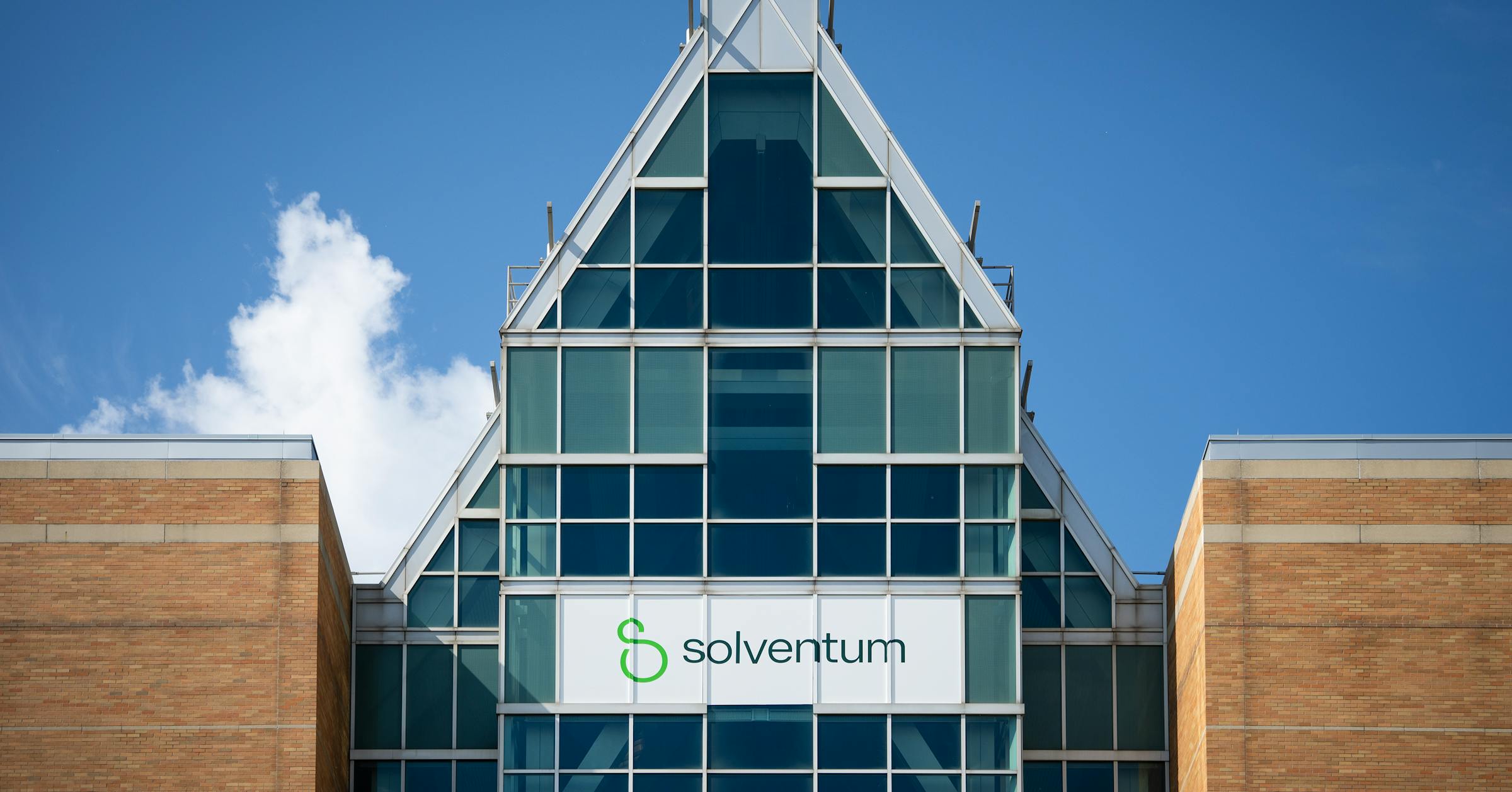Star Tribune
Private donor steps up to save downtown Minneapolis homeless shelter

A private donor is stepping up to help save a downtown Minneapolis homeless shelter that was on the brink of closing.
The donor, who wishes to remain anonymous, is giving $1.5 million to match the city of Minneapolis’ pledge to provide emergency funding for repairs needed to save Agate Housing and Services’ century-old building at 510 S. 8th St. and its heavily used food shelf at 714 Park Av. The 510 building had 42 emergency shelter beds for men and 95 board and lodge beds — a form of temporary housing for homeless people unable to lease an apartment in the private market — and had been scheduled to be vacated on Oct. 9 due to plumbing problems and other capital needs rendering the building increasingly uninhabitable.
“I am amazed by these developments,” said Agate executive director Kyle Hanson in a statement. “I truly thought this shelter for those facing homelessness would be closed for good. This weighed very heavily on me and the staff. We know how much these beds are needed.”
The Minneapolis City Council agreed last week to allocate $1.5 million of emergency funding to Agate, contingent on finding a match to come up with the minimum $3 million required. The 10-3 vote was contentious, with Council Members Linea Palmisano, LaTrisha Vetaw and Michael Rainville opposed. Mayor Jacob Frey has not yet signed the resolution.
Arguing against the funding, Palmisano claimed that the permanent closure of the 510 shelter would have no effect on unsheltered homelessness, saying, “This type of housing at 510 is not going to house people coming from encampments, and that is not the type of shelter it is. It does not have any Coordinated Entry into it, meaning from the county’s Coordinated Entry program, so that argument is completely disingenuous.”
Coordinated Entry is not a housing program, but a process of helping homeless people find placements in permanent housing based on prioritizing the most vulnerable. Homeless people need not go through Coordinated Entry to find overnight beds in any of Hennepin County’s emergency shelters, including the 510 building, but by entering emergency shelter they can be initiated into the Coordinated Entry system in search of permanent housing.
The loss of emergency shelter beds reduce opportunities for people living unsheltered in the encampments to move inside.
“We get referrals straight from street outreach teams, ours and others, the criminal justice system, other shelters,” said Agate spokesperson Virginia Brown. “Removing these programs permanently absolutely impacts folks who might otherwise move out of encampments – particularly for folks exiting the criminal justice system, who do not meet the definitions necessary to qualify for Coordinated Entry.”
Star Tribune
3M health care spinoff Solventum working to keep HQ in Minnesota, eyes Eagan site

Solventum, the 3M health care spinoff, might be keeping its home base in Minnesota after speculation it could eventually set up its headquarters out of state.
The company is working with the city of Eagan to move into an existing commercial building there and is seeking state support for the major upgrades the campus will need to accommodate upwards of 800 employees working on-site every day.
There was concern Solventum could exit the state after leaving its short-term home on the 3M campus in Maplewood. San Antonio, home of major subsidiary Acelity, was a possible target, and Solventum had not made any pledges to remain in Minnesota.
“Other states (and countries) are generously courting the company to move to their jurisdiction, and the bulk of the company’s business is, in fact, not currently located in Minnesota,” an Eagan City Council resolution read. “The company could downsize its workforce currently located at the 3M corporate campus in Minnesota and move employees to any of the company’s 29 locations outside of Minnesota.”
Instead, the state might keep its newest public company, and the Twin Cities could continue to boast yet another Fortune 500 business.
To make that happen, Solventum is looking for an as-yet-unspecified level of funding from the Minnesota Department of Employment and Economic Development (DEED), likely many millions given the “large amount of capital investment” needed, according to city documents.
“The assistance to be provided by DEED is appropriate and necessary to retain an existing business in Minnesota,” the resolution said.
Solventum spun off from 3M on April 1 this year. It manufactures a range of medical devices, bandages, dental supplies and other products. The company earned roughly $8 billion in annual revenue when it was a part of 3M.
Star Tribune
Two small central Minnesota banks merge, increase lending limit to $6.2M

Two central Minnesota banks are merging to bolster the size and resources of the community institutions.
First State Bank of Sauk Centre and Little Falls-based Pine Country Bank will operate as Pine Country Bank, per a Monday announcement. Regulatory authorities have already approved the merger, which will complete in January.
“We’d be considered an agricultural bank,” said Rob Ronning, CEO of Pine Country Bank. “It makes up the largest portion of our portfolio.”
Ronning said the merged bank’s lending limit will likely increase from $4.1 million to $6.2 million. As of June 30, Pine Country Bank had assets of $244 million and First State Bank had assets of $157 million.
Holding company MidCountry Acquisition, based in Minneapolis, owned and operated both banks and drove their merger.
“They were just looking to get more efficient,” Ronning said of MidCountry’s motivation to combine the financial entities.
Pine Country Bank — which began in 1927 as the Royalton State Bank — has branches in Little Falls, Rice and Royalton. First State Bank has locations in Sauk Centre and downtown Minneapolis. Pine Country has 40 employees while First State employs 15 staffers.
Last week, the Federal Reserve cut interest rates by half a percentage point. Ronning is optimistic about the impact of that on the banking industry.
Star Tribune
Minneapolis police swear in first Somali woman, non-citizen in joyful graduation

As well-wishers flocked Officer Ikran Mohamed, 4-year-old Amira Shafii raised her little arm in a proud salute — her auntie’s new police cap perched lopsided on her head. The ‘junior officer’ cracked a smile.
Mohamed, dressed in a black hijab, adjusted her newly pinned badge with henna-laced hands. She’d just become the first Somali woman to ever join the Minneapolis Police Department.
“I want to be a role model for girls who look like me, so they can say ‘I can do it, too,” Mohamed, 23, told reporters Thursday night following a graduation ceremony honoring 11 new recruits and 12 lateral hires from other Minnesota law enforcement agencies.
“I’m just very excited to be here and represent my people and my community.”
Amira Shafii, 4, goes around saluting friends and relatives for photos wearing the police uniform cap of her aunt, officer Ikran Mohamed, who became the first Somali woman to become an officer with Minneapolis Police Thursday, Sept. 26, 2024 at the American Indian Center in Minneapolis, Minn.. ] AARON LAVINSKY • Aaron.lavinsky@startribune.com (Aaron Lavinsky/The Minnesota Star Tribune)
Mohamed immigrated to the United States from Kenya when she was 10 years old. She previously worked as a corrections officer in Steele County.
Beside her, 27-year-old Officer Lesly Vera also had the power of representation on the mind. Vera became the first non-citizen to serve on the police force Thursday, marking a significant victory for immigration advocates.
Although thousands of lawful permanent residents and DACA recipients already serve in the United States military, many states maintain citizenship requirements for those seeking to become a licensed police officer. But in recent years, as law enforcement agencies across the nation have struggled to replenish their ranks with qualified candidates, a growing number have eliminated that requirement.
In 2023, at the recommendation of the Peace Officers’ Training Board, the Minnesota Legislature changed state law allowing for applicants who are either citizens or “eligible to work in the United States under federal requirements.”




